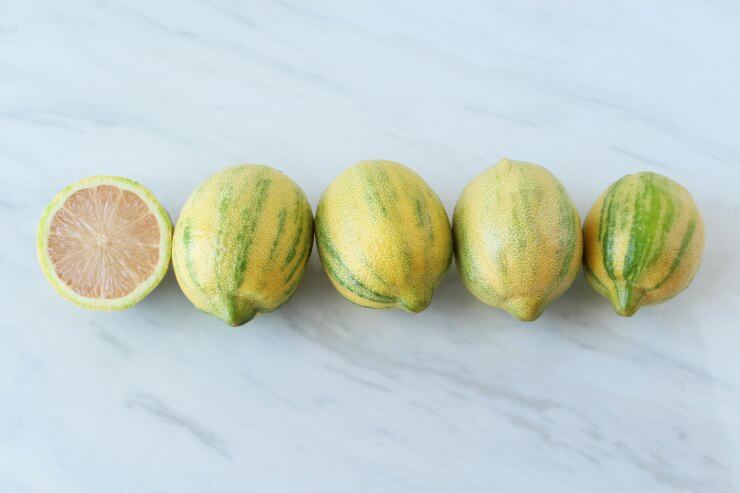
Variegated pink lemons
Lemons are generally categorized as true lemons or as hybrids. This can be a bit confusing, since botanists don’t completely agree whether the lemon should be classified as Citrus limon or as Citrus x limon, implying the plant is actually a hybrid. Eureka and Lisbon lemons are widely considered to be true lemons; the rest are designated as hybridized varieties. Eureka and Lisbon lemons are what you’ll commonly find at your local supermarket.
Growers break lemons into four rough categories: Eureka-type, Lisbon-type, lemon hybrids, and rough lemons. The University of California Riverside’s College of Natural and Agricultural Sciences has grown a number of lemon varieties through its citrus collection program, not all of which are commercially available. Here’s a sampling of each type of lemon and their hybrids available to California gardeners; if you are outside California, check with your local nursery for available cultivars. Many of these cultivars are available throughout the country.
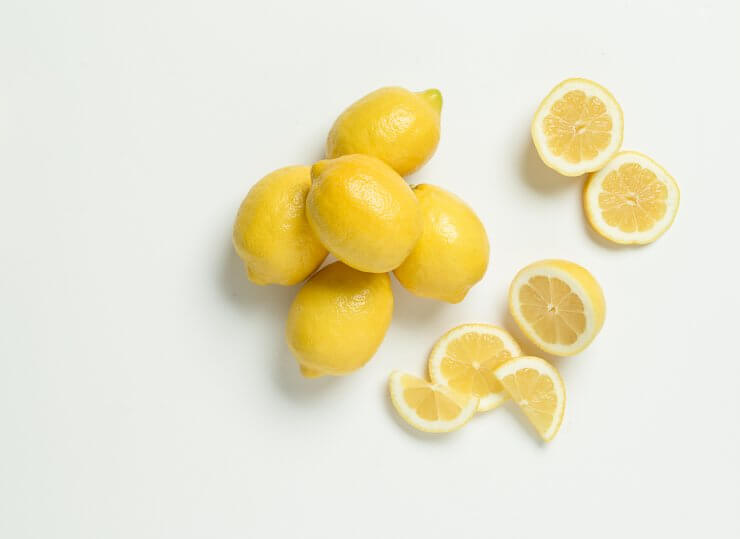
Eureka-type lemons
Eureka-types:
Produce crops mostly in late winter, spring, and early summer. Low acid; commonly found in grocery stores.
- Allen Eureka lemon
- Frost Eureka lemon
- Old line Eureka lemon
- Taylor Eureka lemon
- Variegated Pink Eureka lemon
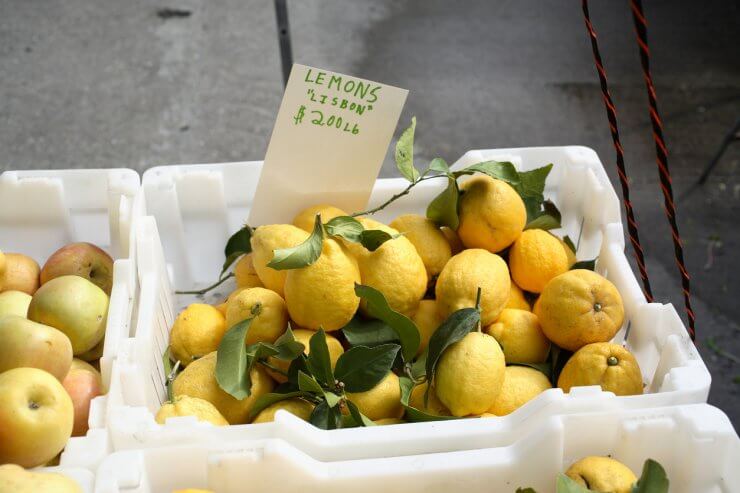
Lisbon Lemons
Lisbon-types:
Produce several crops per year, but mostly winter and early spring. Similar in taste to Eureka, but juicier.
- Dr. Strong Lisbon lemon
- Frost Lisbon lemon
- Monroe Lisbon lemon
- Prior Lisbon lemon
- Yen Ben Lisbon lemon
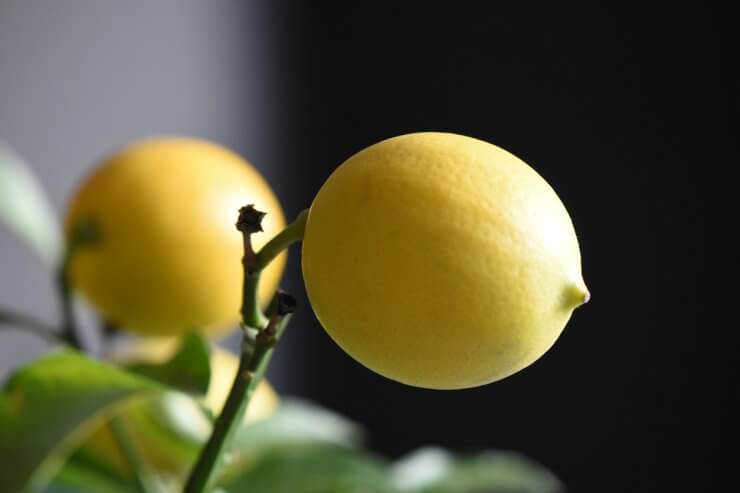
The improved Meyer lemon, a lemon hybrid
Lemon Hybrids:
Lemons cross-bred with other citrus varieties to produce unique cultivars, many of them sweeter than true lemons. Harvesting times vary.
- Genoa lemon
- Improved Meyer lemon
- Ponderosa lemon hybrid
- Villafranca lemon
- Yuma Ponderosa lemon
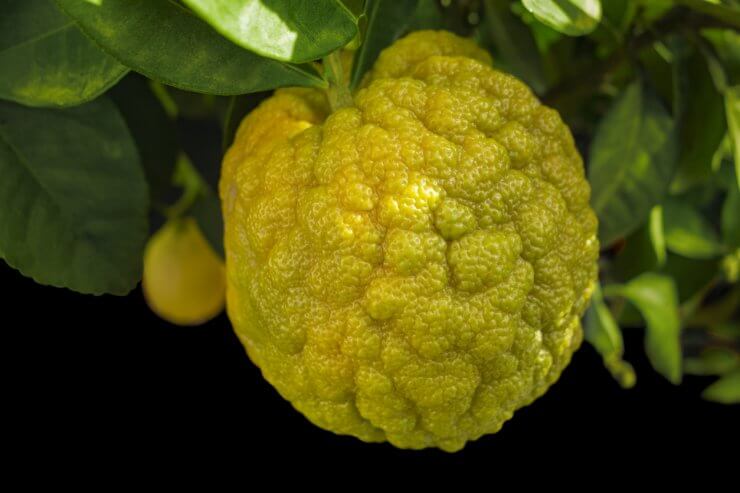
Rough lemon
Rough Lemons:
Bumpy, thick-rinded hybrids. Also called Bush lemons. Often used as rootstock for other lemon varieties, but have tasty flesh, rind, and zest.
- Schaub rough lemon
- UCLA rough lemon
- Vangasay rough lemon
Which type of lemons have you grown? Do you have a preference? Please share your opinion.


 Previous
Previous


I’ve grown both dwarf Eureka and Meyer lemons. However, it’s my understanding that a Neyer is not a true lemon as it’s a “cross breed” of a lemon and and a blood orange and it eminated in China.
It’s sweeter and I make lemon tarts out of them, which was my great grandmother’s recipe. We make them for all of our main holiday meals! Can you please confirm it’s origin and give me any more information regarding a Meyer lemon.
Thank you.
K. Eastlack
Kathleen,
You are correct – Meyer lemons come from a tree produced by crossing a true lemon with an orange or tangerine cultivar. The first know specimen was brought to America from China in 1908 by an employee of the US Department of Agriculture.
Please enjoy this article about Meyer lemons – https://foodgardening.mequoda.com/articles/meyer-lemon-tree-care-101-outdoors-and-in-containers/?t=9997